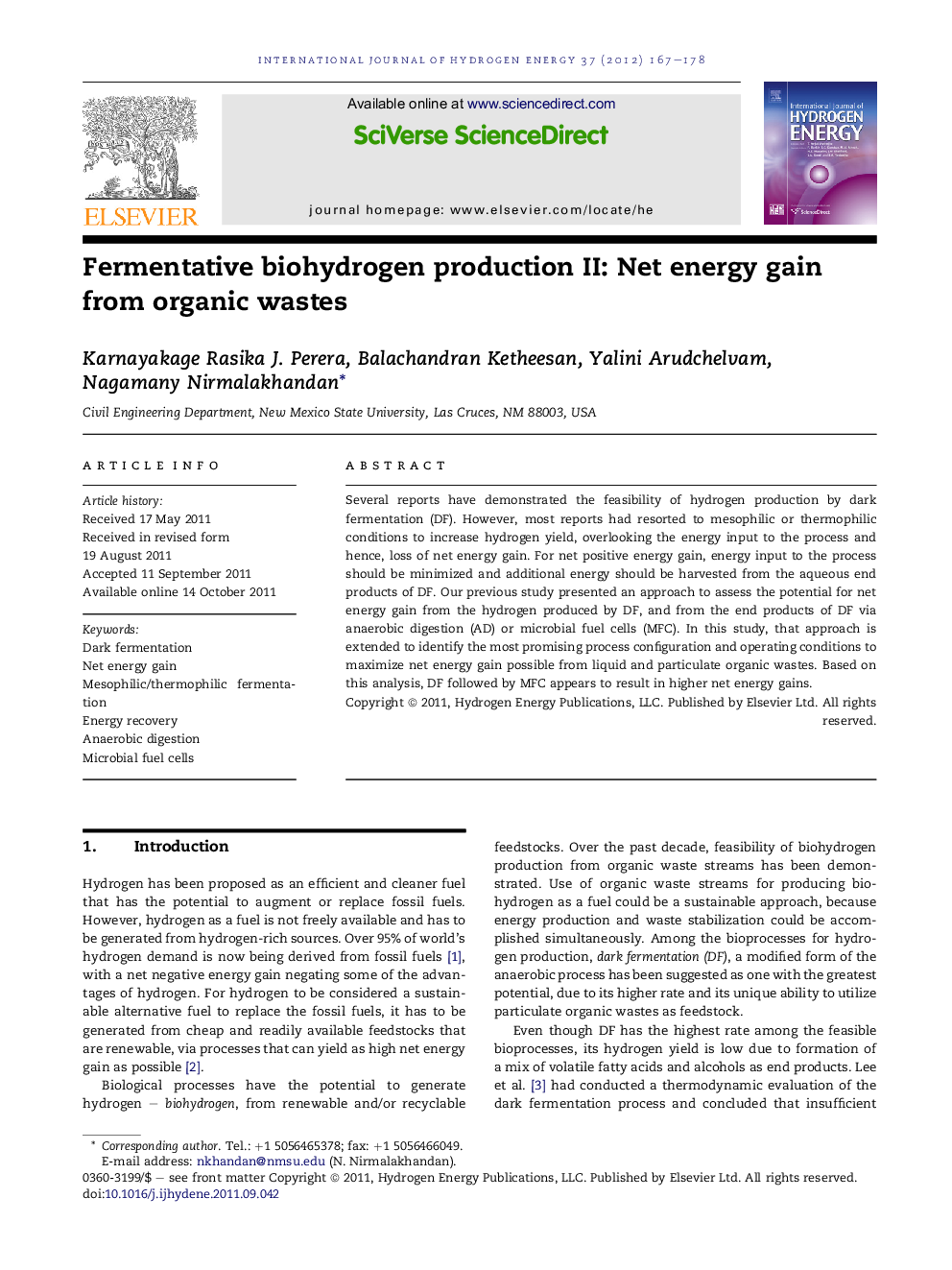| Article ID | Journal | Published Year | Pages | File Type |
|---|---|---|---|---|
| 1277134 | International Journal of Hydrogen Energy | 2012 | 12 Pages |
Several reports have demonstrated the feasibility of hydrogen production by dark fermentation (DF). However, most reports had resorted to mesophilic or thermophilic conditions to increase hydrogen yield, overlooking the energy input to the process and hence, loss of net energy gain. For net positive energy gain, energy input to the process should be minimized and additional energy should be harvested from the aqueous end products of DF. Our previous study presented an approach to assess the potential for net energy gain from the hydrogen produced by DF, and from the end products of DF via anaerobic digestion (AD) or microbial fuel cells (MFC). In this study, that approach is extended to identify the most promising process configuration and operating conditions to maximize net energy gain possible from liquid and particulate organic wastes. Based on this analysis, DF followed by MFC appears to result in higher net energy gains.
► Evaluated net energy gain via dark fermentation. ► Evaluated net energy gain via dark fermentation + anaerobic digestion. ► Evaluated net energy gain via dark fermentation + microbial fuel cells.
